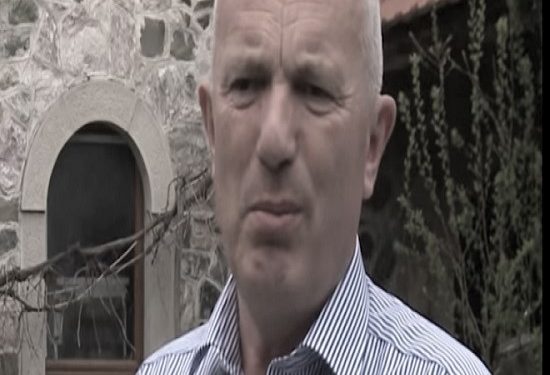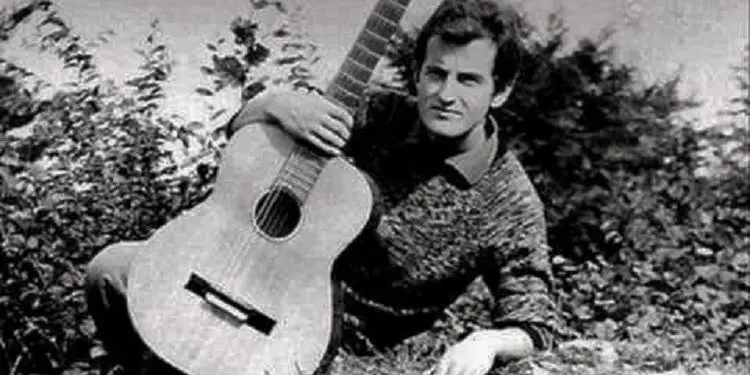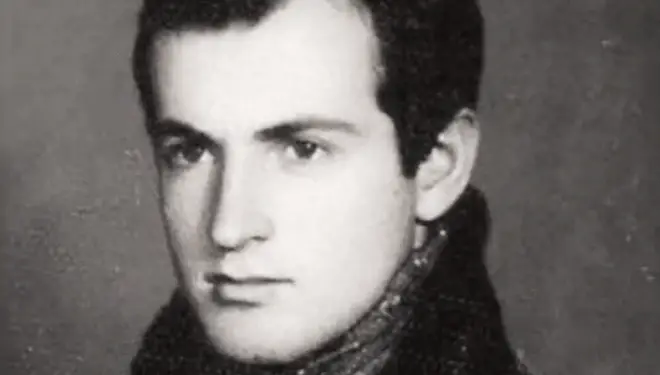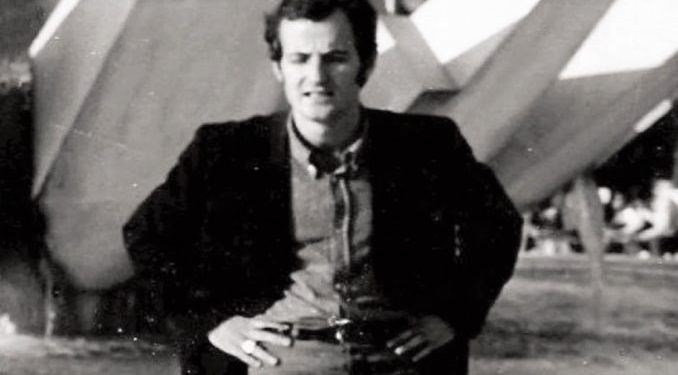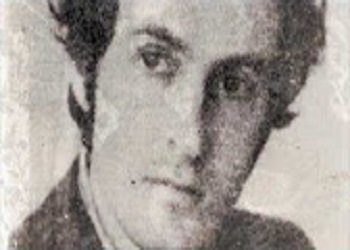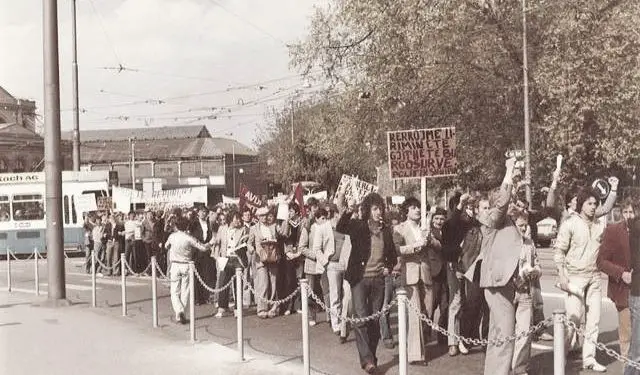By Mehmet Musa
Second part
– The spring of 1981 was an atomic bomb against Yugoslavia and the “Union-Brotherhood!” –
Memorie.al / We are referring to a Croatian newspaper ‘VUS’, from 1981, where it is written that only the district court in Pejë with judge Ukë Muçaj and the district court in Pristina, with judge Ymer Osaj, have judged on the basis of articles 131, 133 for one year, so many defendants, that the whole of Croatia has not judged for 10 years! Our homeland was deserted; the bravest and most zealous activists were tortured, severely beaten by Albanian investigators and handcuffed. But nevertheless, the war went forward and for this, Jusuf Gërvalla and his friends, who worked and acted with emigration outside the Motherland, as well as the government of Tirana, which constantly, with all means, supported the revolutionary youth, have a strong and great merit of Kosovo, before, during and after 1981.
Continues from last issue
I didn’t think about that world as I think about it today, so I ask myself, wouldn’t it be better for Jusuf Buxhovi, who was in Bonn to represent Tanjug, to contact the Gërvalla brothers, about the issue of the homeland, and more prepared 1000 times more than me, or the other signatories of Psalm 23.12.1989, than me?
From Stuttgart, I went to Munich to father Musa, to rest and walk around Munich. In the dormitory where my father lived, there was real cruelty. In a room with three two-story ties, 6 people lived, there was a table where you ate bread. Food was prepared in the corridor; each had a refrigerator found on the street. There were six wooden chairs in the middle and nothing else. All six had chosen this way of life, two from Isniqi, two from Jasiqi, one from Poqesta and one from Koznica.
The guests who came to host had to be arranged in rooms of Italians or Croats, who were two to the room, but who had six ties, one on top of the other. The telephone that was in the corridor served for the workers, if someone from their relatives called them, but it was blocked, to make calls from inside to outside.
One night, after my father came home from work, the phone rang, which was picked up by the person closest to him. A Croat who picked up the phone, called; Musa on the phone. The father who spoke to someone, called me. It was Bardhoshi. After asking me how I was spending these days in Munich, he informed me that they had information that on Saturday, representatives of the Provincial Committee from Kosovo would come to the Club “Rilindja” in Munich, to judge and condemn the glorious events of March and April, which took place in Kosovo. “We see it as reasonable and necessary, since you were a participant in those demonstrations, to go to the club and defend the demonstrations and to expose in front of the workers the violence and terror that was used against the demonstrators, and especially against our student sisters. For a moment, I was out of breath. I was not prepared for such a situation because 90% of the workers were Albanians and there were also Yugoslavs.
Also there, the representative of the consulate, Beqir Kuçi, would be present. Bardhi insisted, telling me that it was very important to unmask those fascists because they were manipulating the workers. He told me that, to support me, he would also send me Sahit Tofajn. When I returned to the room, father was not there, having gone out into the yard, smoking a cigarette. ‘Dad’ you said – where are you? “I went out – he said – because Bardhi hit me in the head, I want a sledgehammer”. Then he asked me: “Did you decide yes, the club job?” Yes – I told him – definitely, that they want to deceive and manipulate the workers. I noticed that the father had gone out into the yard to think about how we could do this work better. He had thought, to find some people of hemp, who could help us in this work in case of need, physically.
After two days, my father told me that he had not been able to find more than three people and they were; Zenun Maxhari from Studenica, two from Isniqi, Haxhi Salihu and Ahmet Syla. On Friday, Sahiti came, with whom we talked about the task we had. That night, neither I, nor Sahiti, did not sleep for almost the entire night, which we spent in a room of Italian women who had fled to Italy for the weekend break. The next day, I prepared the concept and points to discuss. Before I went to the club, I went to consult Shaban Mehmet, an immigrant from Gjilan, whom I had met in Tirana in February 1981, and I even gave him a package of banned books to send to his father mine. When I went with Sahit to Shabani, to the office where he worked, there we also found three people from the Albanian embassy in Vienna. After we greeted each other, Shabani opened the conversation about the task we were assigned to perform.
He begs me that; to give the concept that I had prepared for the Albanian officials to see. The Albanian official, after reading it, compiled a different concept from mine. One of the points that I remember well was how a Croatian writer, in 1980, had published a book against Tito and for this, he was sentenced to a total of three years in prison, while Albanians in Yugoslavia, for a word of mouth, are sentenced to 10 years jail! I was very happy and felt much stronger with the content of the new concept, which was concise, with stronger arguments and national content.
After we parted, Shabani and I went in a taxi to the “Rilindja” Club, where according to the order, we had to enter last and for that reason, we waited until my father came with his friends who had to stay in the yard, ready in case of need, of any unexpected conflict, with the supporters of “Union – brotherhood”. We had thought that the gathering was only for Albanians, while the Club was full of Yugoslav workers, as well as Albanians, so that there was no place to sit. The hall belonged to the Yugoslav club; “Rilindja” had a small room as an annex, in the Yugoslav club. Since there were no places to sit, we stood leaning against the wall.
The meeting did not start at the appointed time, because the “great Yugoslavs” from the Kosovo Provincial Committee had not yet arrived. After two or three minutes, they arrived. All those present stood up and started frantic calls; “Tito-party-revolution”, for more than 5 minutes. The President of the Club, the Yugoslav consul and the guests, sat at the head of the seat, begging the attendees to sit down. After announcing the purpose and nature of this meeting, discussions began. During the discussions, I looked at the faces of the workers and observed if there was anyone present who could recognize me, and I found that I did not know anyone and I was freed.
The floor was taken by the Yugoslav representative, who said: “Dear fellow Yugoslav workers! You have all heard that in March and April of this year, not yet a year since the architect of Yugoslavia, Comrade Tito, died, the internal and external enemies, the ballisticians, nationalists and irredentists of the Albanian nationality, a very small number of them, no more than 150 people, stood up in the demonstrations, deceiving some primary and secondary school students, with demands and fascist slogans, against the ‘Union-fraternity’, and against the constitution of the Socialist Republics of the Federation of Yugoslavia, against the fruits of the revolution! They marched through the streets of Pristina, with unprecedented vandalism, against the law enforcement and popular power.
But, fortunately, in the first place, the Albanian nationality, and all the progressive social and political forces, led by the League of Communists of Yugoslavia, annihilated and fought without compromise this small group of enemies, some by imprisoning and convicting them, in basis of the law, some giving you social warnings, to integrate back into society. This small group was crushed and isolated from all of Yugoslavia, but one thing should be mentioned that; this group found its only support from Enver Hoxha’s Stalinist Albania, which for 35 years in a row, has never liked Tito’s Yugoslavia and the ‘Brotherhood’ of its nations and nationalities.
Therefore, we have come with the purpose of informing you and clarifying that any enemy who raises his head against Tito’s Yugoslavia will fail shamefully, and to advise you to be careful and not fall for provocations of the scum of immigration, old and new, who are sworn enemies of Yugoslavia and who are paid by foreign services, only to tarnish the bright name of Tito’s Yugoslavia by deceiving you with their dirty propaganda that, “allegedly, the Albanian nationality in Yugoslavia, they were second-class citizens, or discriminated against, and oppressed and allegedly, they don’t have their own republic”.
During the conversation, not even a fly could be heard in the hall. In the end, the Yugoslav delegate, of Albanian nationality, said; now I finished and you have the floor, he called; “Long live Tito’s Yugoslavia. Long live the ‘fraternal union’ of all the nations and nationalities of Yugoslavia”, calls that were followed by applause and cheers; “Tito, the Revolution party”!
The one who wanted to discuss had to give his first and last name and from which country he came. They started here and there, some discussion of the workers, while I, all the time, was still observing the faces of the workers and suddenly, I saw a familiar face, that of my Albanian language professor, heart of steel; Zenun Gjoci. After all discussions were over, the Yugoslav officials were asked if there was anyone else who wished to speak. I raised my hand and introduced myself, with a first and last name Gashi, I told him that; I was from Mareci, but I lived in Pristina.
My discussion was this: You comrades who came from Kosovo, you are welcome and your visit to the working class in Munich, and especially the information on the current situation created in our Motherland, bloody Kosovo, is important, but it is a shame and weakness, the working class is manipulated and lied to, especially by high representatives from Kosovo! I want these desert emigrants, whose eyes are blinded by the sun of Kosovo, whose lungs are dry, by the air of Kosovo, whose hearts bleed for the longing they have for their children, and whose bread they eat with tears, sweat and margarine, just to save a few dinars for the families at home. (Absolute silence). As a student that I am, I want to confess the truth, which I have seen with my own eyes.
Every nation in the world has its eyes and soul directed by its students, who are our future; therefore we too must trust our students, that they are our today and tomorrow. In Pristina, on March 26 of this year, they stood up, not 150 students as it was said here, nor 1500 students, but all those students who live in dormitories and barracks, as well as those who live in private houses, who were also supported by the workers of “Ramiz Sadiku”, the branch of Prishtina, so there were over 50 thousand of them. On April 1, 2 and 3, students from all the elementary and secondary schools of Pristina joined the students. , they were joined by almost the entire population living in Pristina, who appeared in front of the building of the Provincial Committee, their reasonable and legal demands, for Kosovo to have the status of the Republic, within the federation, as Mali has Black and Macedonia, which have a population twice as small as Kosovo.
The police countered these demands with whips, beatings and tear-jerking. Many pupils and students were killed and injured there. Then the arrests and punishments of our intelligence began, up to 15 or 20 years in prison, when it is known that the Croatian writer (I have forgotten his name) wrote a work against Comrade Tito and was sentenced to 3 years in prison. On March 26, I saw with my own eyes in front of the dormitories, your sisters and daughters, dear workers, grabbing four policemen by both legs and two hands and throwing them in the air and, dropping them on the ground, on the cement, in the courtyards of the dormitories! Worker brothers, there has been a terrible apocalypse, when the special police inserted the rubber stick into their intimate organs, tell them: “Nečeš da rodiš, nikad albanac”. As I discussed, I noticed several workers, moved and teary-eyed by my words.
After finishing this speech, a short man along with my professor, stood up to support me, shouting loudly; “Kosova Republika”, then also from the majority of the workers, started cheering; “Kosovo Republic” as well as; “We are with the students, we are with the students”! Sahitit, on this occasion, your face opens up because nothing of what we thought happened. Another one, Demë Shqipinija from Juniku, I think made a great contribution. When the call began; “Republic of Kosovo”, the Yugoslav workers, who were not Albanians, began to flee the hall at great speed. There was also an indecent retort, between some workers and the president of the Club, Gani Iberdemaj.
After I had nothing more to say and discuss, after the goal was completely achieved, I told Sahit to go out and, to inform my father, to leave as soon as possible, since everything had gone quite well. The rally ended, with the call; “Kosovo Republic”, and “We are with the students”. In the Club hall, a special kind of sympathy was created between me and some workers. Some, during the greeting with me, kissed me on both cheeks, but the professor and that short, did not shake my hand, without going together, to drink from a coffee, in a bar. To tell the truth, I longed to be with my professor, whom I had not met since 1975. After, we sat down in a restaurant and I impatiently told the professor that when I saw him in the hall, my heart became a mountain and I was convinced that we would win.
The person I called; professor, addressed me, telling me that he was not the professor I remembered, Zenuni, but his brother, Muharrem Gjoci, while the short man’s name was Misin Mavraj, and he was from the district of Istog, and both , were workers. After we passed without the slightest problem and it was Saturday, after a day late, I called Bardhoshi on the phone to inform him about the success of the rally, but he was not in the office, so Sahiti took it upon himself to inform Bardhoshi , about the progress of the gathering, fine and dandy, in the first meeting with him. Sahiti, as late as it was, that evening, fled to Stuttgart.
After two or three days, I also cut the ticket and decided to return to Kosovo, but with mixed premonitions and fear that I could be identified and arrested. I arrived in Isniq late. After two days, there was a case of death of a wise and patriotic man in Isniq, Rexhep Hasan of Imeraje, with whom I often talked about the demonstrations and he advised me, every time, saying: “Take care my son”! Participating in Rexhep Hasan’s funeral also killed my fear that I might be arrested. After that, I went to Pristina, where I met with my friends, whom I informed about everything that had happened during my stay, almost three months, in Germany. I informed them about the determination and optimism that Jusuf and Bardhosh Gërvalla had in winning and achieving our national goals.
They say and it is true that; chance is king of the world. It was Saturday around 11.00, when I returned to Peja. It was raining that day and the hall of the bus station was crowded, like the market day it was, with people of all ages, students, and hallelujah people. In a corner of the hall, far from me, I saw the eyes of an old woman who was dressed in the clothing of Dukagjin. In that entire people, she was the only one who stood out because of the dress she wore. I became curious and approached and saw next to her, the boy Agron Haradinaj, who was about 14 years old and I knew him. When he saw me, Agron got up and gave me his hand. First I asked him that; who was that old woman with marhama, who was with him and he told me that it was his grandmother, Tysha, and next to her was his mother. He told me that they had been in prison to visit his father, Ismail Haradinaj.
After I asked him that; how was Baca’s health and how was he doing in prison, he told me that; in terms of health, he was fine, while for the rest, he told me that he is going through it, like a man who is in prison. I asked him if he wanted to inform his brother, Naim, about his father’s health, and he told me that; there was no way, he didn’t know how to communicate with her. After that, I invited him to come with me, because I had the phone number of a friend of Naimi’s, and we went to a small post office, behind the bus station in Peja, which had only two booths, and we both entered a booth. , where I formed the wall of Bardhosh Gërvalla. Then I gave that number to Agron, and advised him to be careful, from the mangy hounds of the UDB.
After I parted with Agron, I felt very bad, when I thought that a whole family, like that of Ismail Haradinaj, who was against a state of 23 million people, was sent to prisons and tortured for the national cause, and such families could be counted on the fingers in Deçan. After that, I thought about the signatories of Zebur, from 1989, where were they at that time and what were they doing?! Yes! They were engaged in their usual work. They judged the “counter-revolution” in Kosovo and wrote; “Tito for Albanian literature and Albanian literature for Tito”.
Thus came the end of 1981 for me and my ideal and illegal friends, who were counted on the fingers but were increasing day by day. Glory for life and death, the historical events of 1981!
Honor and glory to all those who shed their blood over the centuries for an Albania of all Albanians! Honor and glory to the immortal Jashars, led by the father of seven million Albanians, Shaban Murati!
Honor and glory to the Liberation Army of Kosovo, which gave freedom to a part of Albania captured by Serbia./Memorie.al
Eternal glory!
Isniq, on November 28, 2021




